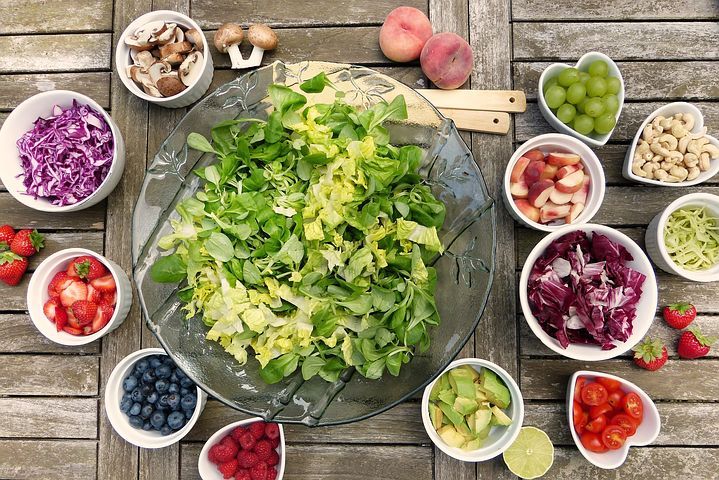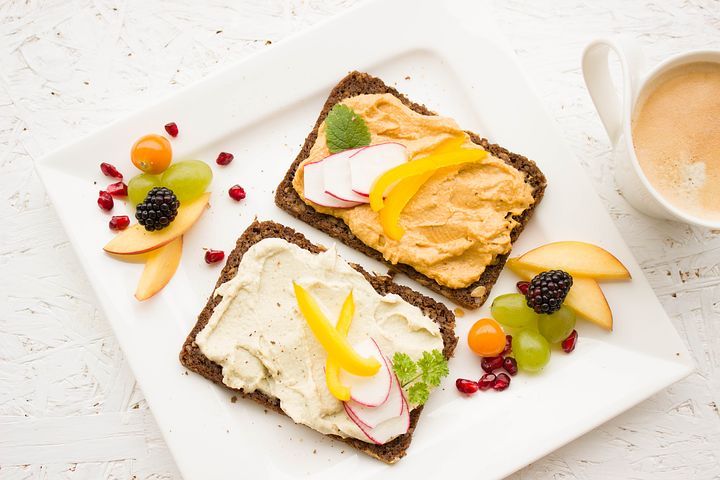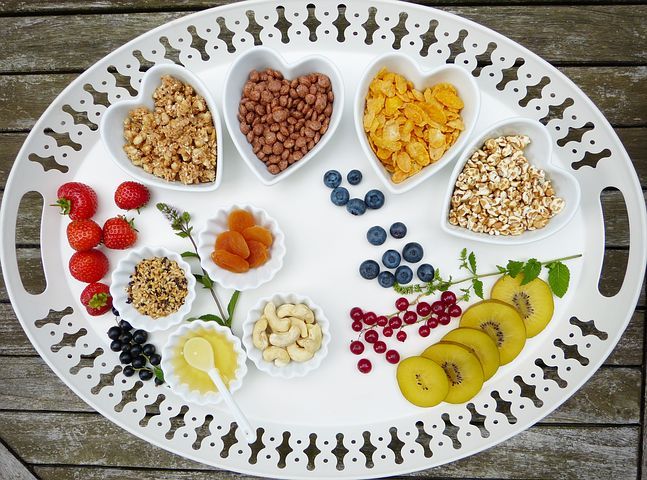Why Vegetarianism Is Getting More Popular Than The Past Decade
Apr 10, 2019 • 54 views

Vegetarianism means to include fruits and vegetables in your diet.The diet does not include any meat. There are many benefits of consuming vegetables. We can also get all the nutrients by only consuming it.
There are many types of vegetarians. Some consume eggs, fish and dairy products. Some people do not consume dairy products at all. And some stick with only vegetables.
There are many things that led a person to become a vegetarian.
History ofvegetarianism
According to different sources people who only eat vegetarianism foodin India dates back from 7 BCE in the region where Lord Mahavira and Buddha lived. They encouraged people to take only vegetables and food.They told people to love all living beings and not to kill them. So, common masses obeyed their words and started taking only fruits and vegetables.
In ancient Greece around 6th century B.C. people practised vegetarianism. The famous Greece teacher Pythagoras also practised vegetarianism. At that time a religious movement Orphics also promoted and practised vegetarianism.
At one point the movement of vegetarianismlost its popularity and people started to intake non-vegetarian food. But it again become popular in 19-20 century and spread worldwide.

Types of vegetarianism diets-
There are many types of vegetarian foods. Like:
Macrobiotic diets consist mostly of whole grains and beans.
Lacto vegetarianism includes dairy products but not eggs.
Ovo vegetarianism includes eggs but not dairy products.
Ovo-lacto vegetarianism also called as lacto-ovo vegetarianism includes animal products such as eggs, milk, and honey.
Sattvic diet also known as yogic diet, a plant-based diet which may also include dairy and honey, but excludes eggs, red lentils, durian, mushrooms, alliums, blue cheeses, fermented foods or sauces, and alcoholic drinks. Coffee, black or green tea, chocolate, nutmeg, and any other type of stimulant (including excessively pungent spices) are sometimes excluded, as well.
Veganism excludes all animal flesh and by-products, such as milk, honey and eggs, as well as items refined or manufactured through any such product, such as animal-tested baking soda or white sugar refined with bone char.
Raw veganism includes only fresh and uncooked fruit, nuts, seeds, and vegetables. Food must not be heated above (48 °C) to be considered "raw". Usually, raw vegan food is only ever "cooked" with a food dehydrator at low temperatures.
These are some of the main vegetarian diets there are also other types of diets such as Buddhist vegetarianism, Fruitarianism which only take fruit and Mahavira vegetarianism.
Semi-vegetarians-
Some vegetarians also include meat in their diet while some people do not consume animal products at all. Those who take meat called themselves as semi-vegetarians.
There can be many other types of vegetarian diets. The vegetarian society contests the semi-vegetarians as they believe that vegetarIans should not eat any type of animal flesh.
Benefits if vegetarianism-
There are many benefits of vegetarianism. Taking in right andregular amount of vegetarian food reduces the risk of cancer of some kinds, heart diseases, type-2 diabetes and obesity. It helps to reduce the weight.
Vegetarians have their cholesterol level controllers have low BMI compared to those who are non-vegetarians.
Taking adequate amount of vegetarian foods helps us to keep healthy and fit in all stages of life. Whether it is infancy, old age, pregnancy, adolescence and for athletes.

The vegetarian diet should be a part of our daily diet with exercises.And it should exclude any type of unhealthy habits like smoking, alcohol, etc.,
Risk of vegetarianism
Although there are manybenefits of taking vegetarian food. But there can be some risks also while taking it. Ifyou have not properly managed your diet then it can lead to loss of some nutrients.
Nutrients that can be lacking include:
Iron
Calcium
Protein
Vitamin D
Vitamin B12
Zinc
Vegetarian food can be heavy and high in calories. Good sources of iron are sea vegetables, such as nori, fortified breakfast cereals, legumes, such as beans and lentils, dried fruit, such as figs, and broccoli, among others. Consuming these with foods high in vitamin C, for example, citrus fruits or tomatoes, will help the body absorb the iron.
Milk and yogurt are important sources of calcium. Vegetarians who are avoiding dairy products can get calcium from tofu, fortified soy milk, green leafy vegetables, and dried figs.
It is particularly important for vegetarian children and teens to plan their nutrient intake, as their bodies are still developing. Calcium intake, for example, can affect bone health for the long term.
Fortified soy milk and breakfast cereals can help in the synthesis of vitamin D, but exposure to sunlight is also necessary.
Vegetarianshave a higher risk of developing vitamin B12 deficiency compared with people who completely lie animal-based products. Fortified foods are recommended for those who do not consume eggs or dairy products, and a supplement may be necessary.

Dairy produce normally provides zinc, but fortified cereals, dried beans, nuts and soy products can make up for this. Zinc is an essential nutrient that plays a role in cell metabolism and immune function.
Conclusion
It is true that vegetarianism has gained a lot of popularity than the last decade. And is becoming more popular day by day.
Although taking vegetarianism food is a good habit. It helps to save the animal life. It also saves our ecosystem. .
Sometimes while taking animal products makes us ill because it is possible that the animal may be suffering from some disease like bird flu.
There can be many advantages of taking vegetarian food. Butwe should be careful while taking it. Because if We do not take care of our diet then it will led us to some loss of nutrients.
It is wisely said “ Choose wisely and eat well”.
So, choose wisely and always remain healthy and fit.
refrences- google search
